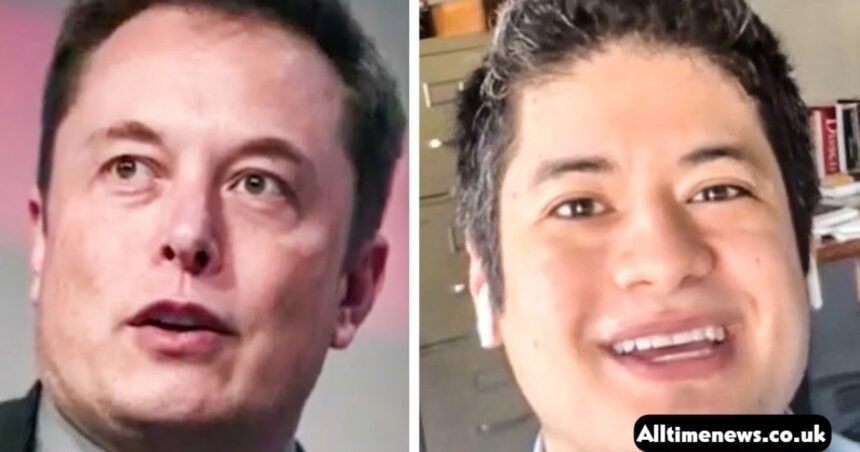In a striking move that has ignited debate around press freedom and social media accountability, journalist Ken Klippenstein found himself at the center of controversy after Elon Musk suspended his Twitter account. The suspension followed Klippenstein’s publication of a dossier on U.S. Senate candidate J.D. Vance, raising questions about the intersection of politics, media, and online platforms.
The Shocking Background of the Controversy
Ken Klippenstein, a notable investigative journalist known for his fearless reporting, published a dossier detailing J.D. Vance’s controversial past and political affiliations. The report included information about Vance’s connections with influential political figures and his stances on critical issues, aiming to provide voters with transparency ahead of the election.
However, the dossier drew immediate attention, and soon after its release, Elon Musk, who has made headlines for his unfiltered approach to content moderation on Twitter, suspended Klippenstein’s account. Musk’s decision sent shockwaves through the journalism community, prompting widespread backlash and raising concerns about censorship.
Elon Musk’s Justification for the Suspension
In a series of tweets following the suspension, Musk justified his actions by suggesting that Klippenstein had violated Twitter’s policies regarding misinformation and harmful content. Musk’s unpredictable style and commitment to promoting “free speech” have often put him at odds with traditional journalistic practices. Critics argued that this move exemplified a dangerous precedent for media freedom, especially when it comes to covering political figures.
Public Reaction: Support for Klippenstein
The public’s response to Musk’s suspension of Klippenstein was swift and vocal. Many journalists and media advocates rallied in support of Klippenstein, viewing the suspension as an attack on press freedom. Social media platforms erupted with hashtags like #FreeKlippenstein, calling for his reinstatement and questioning Musk’s motives.
Conversely, some supporters of Vance defended the suspension, arguing that the dossier contained misleading information and that it was within Musk’s rights to protect the platform from what they deemed harmful content. This divide highlighted the ongoing tensions between free speech advocates and those who emphasize the need for accountability in journalism.
Read also: Mayor Eric Adams Charged: A Scandal of Bribery and Fraud
The Fallout: Implications for the Media
Klippenstein’s suspension raises significant questions about the relationship between journalists and social media platforms, especially under the leadership of individuals like Elon Musk, who hold considerable power over what content is allowed. The incident has sparked discussions about the need for clear and fair content moderation policies that protect journalists while ensuring that misinformation is adequately addressed.
Moreover, the backlash against Musk reflects broader concerns about censorship in the digital age. With social media becoming a primary source of information for many, the actions taken by platform owners can significantly influence public perception and discourse.
Gossip and Speculation: Behind the Scenes of the Scandal
As the situation unfolded, gossip and speculation began to swirl regarding the motivations behind Musk’s actions. Some insiders suggested that the suspension was part of a larger strategy to cultivate a specific narrative surrounding Vance and other conservative figures. Others speculated that Musk’s personal views influenced the decision, given his outspoken support for various political candidates.
Media experts noted that the incident could set a dangerous precedent for journalists reporting on controversial subjects, particularly in the current polarized political climate. The repercussions of this suspension extend beyond Klippenstein, potentially chilling reporting on key political figures across social media platforms.
Ken Klippenstein’s Response: Determination to Continue Reporting
In response to his suspension, Ken Klippenstein took to alternative platforms to voice his frustrations and reaffirm his commitment to investigative journalism. He emphasized the importance of holding powerful figures accountable and stated his intention to continue covering stories that matter. Klippenstein’s resilience reflects the challenges many journalists face in an evolving media landscape where the lines between reporting and platform politics can often blur.
Future of Klippenstein and Twitter’s Content Policies
As of now, Ken Klippenstein’s future on Twitter remains uncertain. The suspension has garnered significant attention, but it is unclear whether Musk will reinstate his account or maintain the ban. Klippenstein has expressed determination to continue his work. He asserts the importance of investigative journalism in holding powerful figures accountable.
The implications of this incident may prompt journalists to reevaluate their strategies for disseminating information on social media. They must balance the need for transparency with the potential risks of censorship. As for Musk, his leadership of Twitter will continue to be scrutinized. Many are advocating for clearer guidelines that protect journalistic integrity while navigating the complexities of online discourse.
You may also like
- Stephanie Fuggetta: Her Life Story, Career, and Achievements!
- Leah Funke Missing Miami Florida: Missing Woman Found At Last
- Who is Laura Ingraham Married to?: Affairs, Single Motherhood, and Politics
Conclusion: A Defining Moment for Press Freedom
The suspension of Ken Klippenstein by Elon Musk over the JD Vance dossier highlights the ongoing tensions between social media, journalism, and political accountability. As the debate over press freedom intensifies, this incident thus serves as a critical reminder of the challenges journalists face. They navigate a rapidly evolving digital landscape. The fallout from this controversy may have lasting effects on how news is reported and consumed in the future.
FAQs
Why was Ken Klippenstein suspended from Twitter?
Klippenstein was suspended after publishing a dossier on J.D. Vance, which Elon Musk claimed violated Twitter’s misinformation policies.
What was included in the JD Vance dossier?
The dossier detailed Vance’s past affiliations and political stances, aiming to provide transparency ahead of the election.
What has been the public reaction to the suspension?
The public reaction has been mixed, with many supporting Klippenstein and viewing the suspension as an attack on press freedom.
What are the implications of this incident for journalism?
The incident raises concerns about censorship and the relationship between journalists and social media platforms under influential leaders like Elon Musk.
What’s next for Ken Klippenstein?
Klippenstein has expressed determination to continue his work, but the future of his Twitter account remains uncertain.
